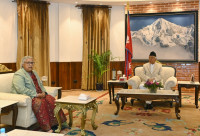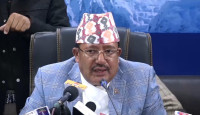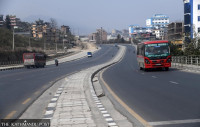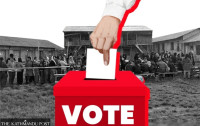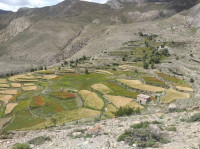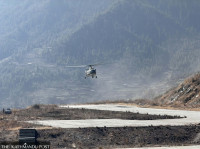National
Government appoints Khatiwada as special economic advisor to Prime Minister Oli
Other Cabinet decisions include resumption of long-haul bus services and domestic flights from Thursday and allowing foreigners to visit Nepal for trekking and mountaineering starting October 17.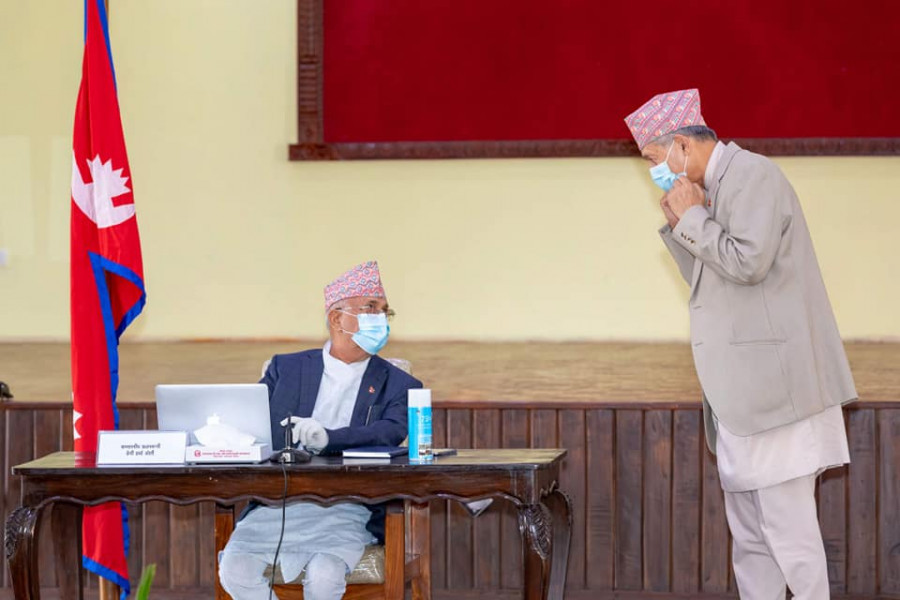
Tika R Pradhan
Days after Yubaraj Khatiwada resigned as finance and communication minister, the government appointed him as a special economic advisor to the prime minister.
“The government has decided to appoint Yubaraja Khatiwada as the prime minister’s special economic advisor with benefits on par with a minister,” Foreign Minister Pradeep Gyawali, also the government spokesperson, said during a press briefing organised to make public Monday’s Cabinet decisions.
Khatiwada resigned as a minister on September 4 after he completed his six months in the Oli Cabinet after his reappointment on March 4, as his two-year tenure as the National Assembly member ended on March 3.
Amid changing internal dynamics in his party, Prime Minister KP Sharma Oli decided not to nominate Khatiwada again for the National Assembly as he was under pressure to appoint party vice-chair Bamdev Gautam for the lone seat available.
Monday’s Cabinet decided to recommend Gautam to the President for nominating him as a member of the National Assembly, as per the September 3 party Secretariat’s decision.
Speculations were there since the Secretariat decision that Oli could continue to seek Khatiwada’s advice in a different capacity like an economic advisor.
Both the finance and communication ministries held by Khatiwada are currently with Oli.
Many say Khatiwada’s appointment as the special economic advisor to the prime minister could be part of Oli’s larger plan not to give the finance ministry to any other leader anytime soon.
Former finance minister Ram Sharan Mahat said the prime minister could have appointed Khatiwada as his economic advisor with an intention to keep the finance ministry with himself.
“The prime minister can appoint someone as an economic advisor though,” Mahat, a Nepali Congress leader, told the Post. “I don’t want to comment on any party’s internal politics and if the move to appoint Khatiwada is guided by that. In principle, it, however, is always better to have a separate finance minister.”
According to Mahat, the only concerning thing is the Oli government has a habit of talking big and failing on delivery.
“With Khatiwada as the economic advisor and prime minister holding the finance ministry portfolio himself, there are chances the same policies introduced by Khatiwada may get continuation despite them failing to achieve desired results,” said Mahat.
Khatiwada’s two-and-a-half-year-long tenure as the finance minister received mixed reactions, with many pointing at his uncanny contempt for the private sector, keenness to impose state control and bureaucratic style of functioning.
Leaders close to Oli, however, say appointing Khatiwada does not mean the prime minister won’t have a finance minister in his Cabinet.
“The finance ministry will run in the way it has to, so there will be a minister sooner or later,” Gyawali told the Post. “Khatiwada will basically support the prime minister, as he needs a team of advisors with expertise in various fields.”
Apart from Khatiwada’s appointment, the government has also taken a slew of decisions, including resuming domestic flights and long-haul public transport services from September 17.
The government has decided to allow public transport and domestic planes but only 50 percent of their seats should be occupied.
Domestic airlines operators welcomed the government’s decision but criticised the diktat that only 50 percent seats have to be kept empty.
“Domestic airlines are allowed to fly in almost all countries but there is no such provision—flying half empty,” said Anil Manandhar, corporate manager of Shree Airlines. “Even if the civil aviation body allows airlines to double the existing airfares, the airfare structure will discourage passengers from flying.”
Even though international flights have resumed since September 1, the government has not allowed international tourists to fly into Nepal.
Gyawali said on Tuesday that Monday’s Cabinet decided to allow foreigners to come to Nepal for trekking and mountaineering activities starting October 17.
“We have decided to issue visas for foreign tourists from different diplomatic missions and embassies who wish to come to Nepal for trekking and mountaineering purposes,” said Gyawali. “They have to submit negative PCR test reports not older than 72 hours on their arrival.”
The government has also decided to let development projects bring technicians from foreign countries. Many projects have been left in limbo, as skilled workers are stuck in their home countries.
Prithvi Man Shrestha and Sangam Prasain contributed reporting.




 13.42°C Kathmandu
13.42°C Kathmandu
